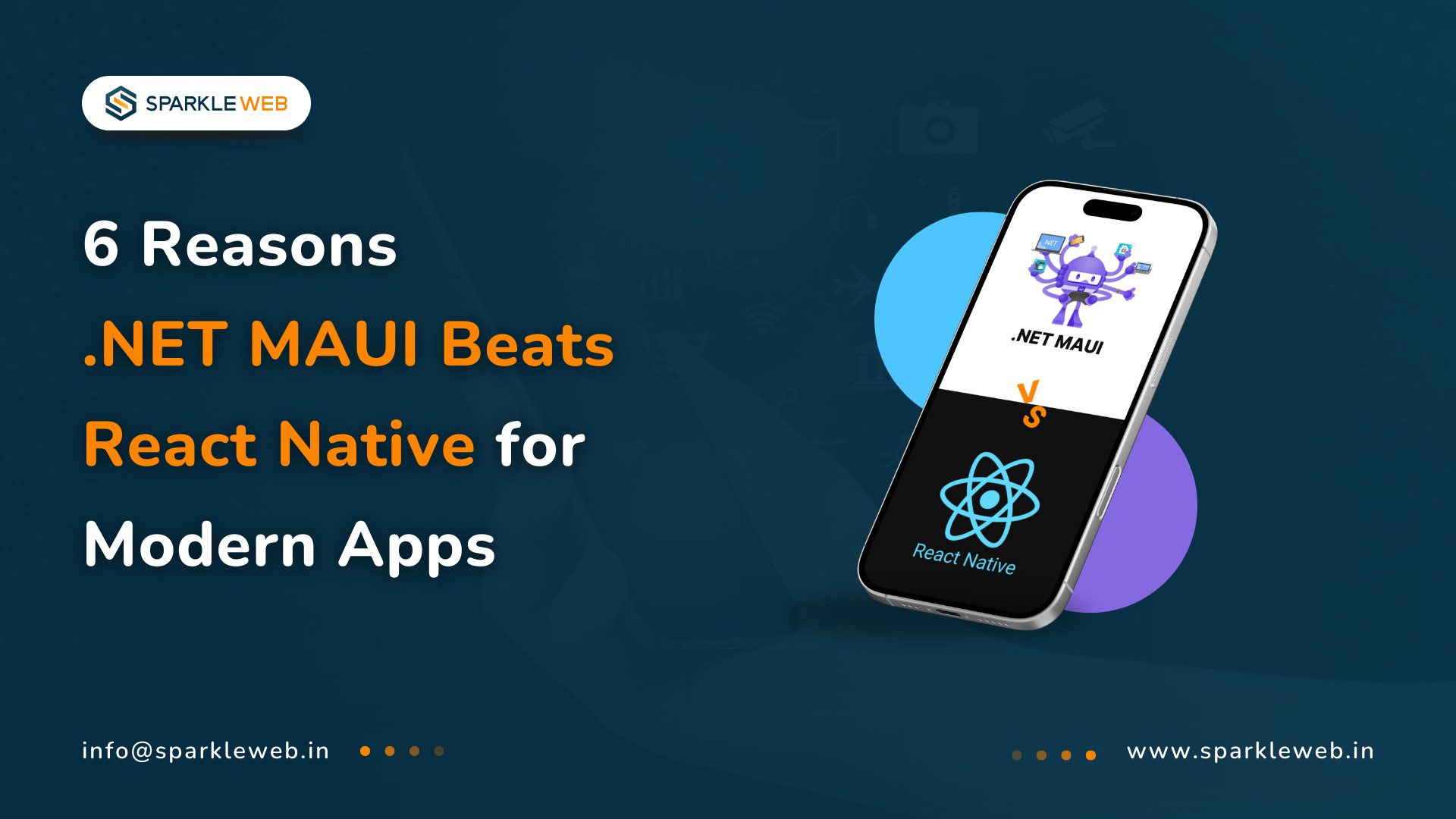-
React Native – created by Facebook, widely popular in the developer community.
-
.NET MAUI (Multi-platform App UI) – created by Microsoft, a newer but very powerful option that is replacing Xamarin.Forms.
What is .NET MAUI?
-
iOS (iPhone, iPad)
-
Android (all modern phones and tablets)
- Windows (desktop applications)
- macOS (Mac desktop applications)
.NET MAUI vs React Native: A Quick Comparison


Top Reasons to Choose .NET MAUI
1. Unified .NET Ecosystem
-
You use the same language (C#) for frontend, backend, APIs, and even cloud solutions with Azure.
-
You don’t need to switch between different ecosystems (like JavaScript for frontend and C# or Java for backend).
- Maintenance becomes easier because your team only needs to focus on one technology stack.
-
Build the app UI with MAUI.
-
Handle the backend API with .NET Core.
- Store and process data in the Azure cloud.
2. Native Performance
-
MAUI apps are compiled into native binaries using AOT (Ahead-Of-Time compilation). This means the app runs almost like a native app written in Java (for Android) or Swift/Objective-C (for iOS).
-
React Native apps, on the other hand, use a JavaScript bridge that communicates between JavaScript code and native components. This bridge slows things down, especially in apps that need high performance (like gaming, real-time tracking, or IoT apps).
3. Easy Access to Native APIs
-
GPS / Location
-
Camera
- Bluetooth
- Push Notifications
-
Sensors (gyroscope, accelerometer, etc.)
var location = await Geolocation.GetLastKnownLocationAsync();4. One Project, Multiple Platforms
-
You don’t need to maintain multiple codebases.
-
You can still write platform-specific code when required, but the majority stays shared.
- Project management becomes much easier for teams.
5. Better Tooling with Visual Studio
-
Hot Reload – See changes in your app instantly without restarting.
-
IntelliSense – Smart suggestions for your code.
- XAML Live Preview – Design UI visually while coding.
- Powerful Debugging – Integrated tools for debugging across devices.
6. Enterprise Support and Stability
-
Backed by Microsoft, one of the largest and most trusted names in enterprise software.
-
Long-Term Support (LTS) releases guarantee stability for years.
- Commercial support, detailed documentation, and a strong developer community.
When React Native Might Be a Better Fit
-
If your team already has strong JavaScript and React skills, React Native may save time.
-
If you are building a prototype or MVP quickly, React Native is often faster to start with.
- The React Native community is very large, with thousands of ready-made libraries and UI kits.
Real-World Use Cases for .NET MAUI
Conclusion
-
The global cross-platform app market is expected to reach $546 billion.
-
Over 34% of professional developers use C#.
- .NET MAUI apps show 30–40% faster startup times compared to React Native apps.



Vikas Mishra
A highly skilled Angular & React Js Developer. Committed to delivering efficient, high-quality solutions by simplifying complex projects with technical expertise and innovative thinking.
Reply